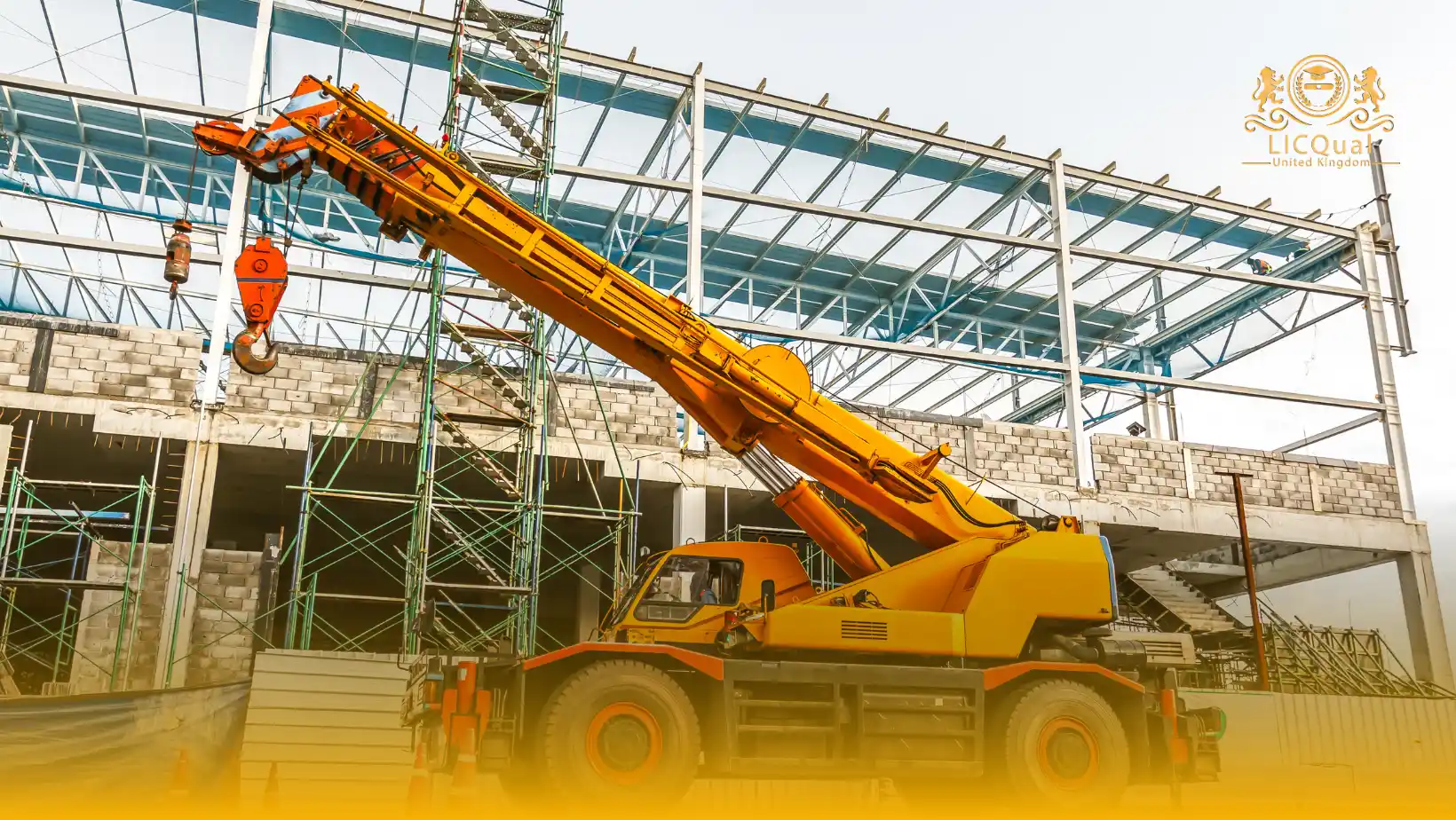The LICQual Level 3 Certificate in Mobile Cranes (MOB) is a globally recognized qualification designed for professionals involved in the operation, supervision, and safety management of mobile cranes. Whether you’re working in construction, logistics, heavy industry, or infrastructure development, this course equips you with the essential skills and knowledge to operate mobile cranes safely, efficiently, and in compliance with international standards. It’s the ideal stepping stone for operators looking to formalize their expertise or for newcomers aiming to build a strong foundation in mobile crane operations.
The course provides in-depth training on the principles of mobile crane mechanics, load dynamics, and operational techniques. You’ll learn how to assess site conditions, prepare lifting plans, and operate various types of mobile cranes under different environmental and load-bearing conditions. Aligned with key global standards such as ISO 9926-1, OSHA, and LOLER, the curriculum ensures that participants are fully prepared to manage both day-to-day operations and complex lifting challenges with confidence and precision.
This qualification is tailored for mobile crane operators, lifting supervisors, rigging crews, and safety officers who need to understand the risks, controls, and technical demands of working with mobile cranes. It’s also suitable for construction site managers, logistics coordinators, and plant maintenance teams who want to improve their understanding of crane performance and regulatory compliance. The course combines theoretical knowledge with real-world case studies and, where applicable, practical demonstrations.
Holding the LICQual Level 3 Certificate in Mobile Cranes demonstrates your commitment to workplace safety, professional development, and operational excellence. Employers across industries recognize this certification as a mark of competence and reliability, helping you stand out in a competitive job market. Whether you’re working onshore or offshore, in urban development or remote industrial sites, this credential enhances your career mobility and opens doors to higher-responsibility roles.
Flexible learning options—including online modules, blended delivery, and in-person workshops—make it easy to fit the course into your schedule, even if you’re already working full-time. With guidance from experienced crane professionals and safety experts, you’ll gain both the confidence and capability to perform at the highest level.
Course Overview
Qualification Title
LICQual Level 3 Certificate in Mobile Cranes (MOB)
Total Units
6
Total Credits
24
GLH
120
Qualification #
LICQ2200536
Qualification Specification
To enroll in the LICQual Level 3 Certificate in Mobile Cranes (MOB) applicants must meet the following criteria:
|
Qualification# |
Unit Title |
Credits |
GLH |
|---|---|---|---|
|
LICQ2200536-1 |
Fundamentals of Mobile Crane Operation |
4 |
20 |
|
LICQ2200536-2 |
Health, Safety, and Risk Management in Crane Operations |
4 |
20 |
|
LICQ2200536-3 |
Load Handling, Rigging, and Stability Control |
4 |
20 |
|
LICQ2200536-4 |
Crane Inspection, Maintenance, and Fault Diagnosis |
4 |
20 |
|
LICQ2200536-5 |
Crane Operation Controls and Communication |
4 |
20 |
|
LICQ2200536-6 |
Site Preparation and Environmental Considerations |
4 |
20 |
By the end of this course, applicants will be able to:
1. Fundamentals of Mobile Crane Operation
- Identify different types and classifications of mobile cranes and their components.
- Explain the mechanical principles and functions that enable mobile crane operation.
- Demonstrate understanding of the capabilities and limitations of various mobile crane configurations.
2. Health, Safety, and Risk Management in Crane Operations
- Conduct risk assessments and identify hazards associated with mobile crane use.
- Apply appropriate health and safety controls in line with OSHA, LOLER, and ISO 45001 standards.
- Develop safe working practices to minimize accidents and injuries during crane operations.
3. Load Handling, Rigging, and Stability Control
- Select suitable rigging equipment and techniques based on load type and weight.
- Calculate load weight, center of gravity, and determine proper load balancing for stability.
- Apply correct lifting and lowering procedures to maintain crane stability and prevent accidents.
4. Crane Inspection, Maintenance, and Fault Diagnosis
- Perform thorough pre-use inspections and identify potential mechanical or electrical issues.
- Follow routine maintenance schedules and document maintenance activities as required.
- Diagnose faults and recommend appropriate corrective actions to ensure safe crane operation.
5. Crane Operation Controls and Communication
- Operate mobile cranes using various control systems effectively and safely.
- Utilize standardized hand signals and radio communication for coordinated lifting operations.
- Respond appropriately to communication cues to maintain safe and efficient crane movements.
6. Site Preparation and Environmental Considerations
- Assess site conditions including ground stability and environmental factors affecting crane operation.
- Implement site preparation measures to ensure safe crane deployment and operation.
- Apply environmental protection practices to minimize impact and comply with relevant regulations.
This course is designed for individuals who work with or are aspiring to work with mobile cranes in various industries. It is ideal for:
- Mobile Crane Operators seeking to formalize and enhance their skills with an internationally recognized qualification.
- Lifting Supervisors and Rigging Personnel responsible for planning and overseeing safe lifting operations.
- Site Managers and Construction Supervisors who need a thorough understanding of mobile crane operations and safety requirements.
- Maintenance Technicians and Mechanical Engineers tasked with inspecting and maintaining mobile crane equipment.
- New Entrants to the Crane Operation Industry looking to build foundational knowledge and practical skills.
- Health and Safety Officers involved in risk assessment and compliance in environments where mobile cranes are in use.
- Employers and Contractors aiming to upskill their workforce to meet safety regulations and improve operational efficiency.
Whether you’re advancing your career or entering the mobile crane sector for the first time, this course provides the essential training and certification to operate safely, responsibly, and confidently.
Assessment and Verification
All units within this qualification are subject to internal assessment by the approved centre and external verification by LICQual. The qualification follows a criterion-referenced assessment approach, ensuring that learners meet all specified learning outcomes.
To achieve a ‘Pass’ in any unit, learners must provide valid, sufficient, and authentic evidence demonstrating their attainment of all learning outcomes and compliance with the prescribed assessment criteria. The Assessor is responsible for evaluating the evidence and determining whether the learner has successfully met the required standards.
Assessors must maintain a clear and comprehensive audit trail, documenting the basis for their assessment decisions to ensure transparency, consistency, and compliance with quality assurance requirements.







